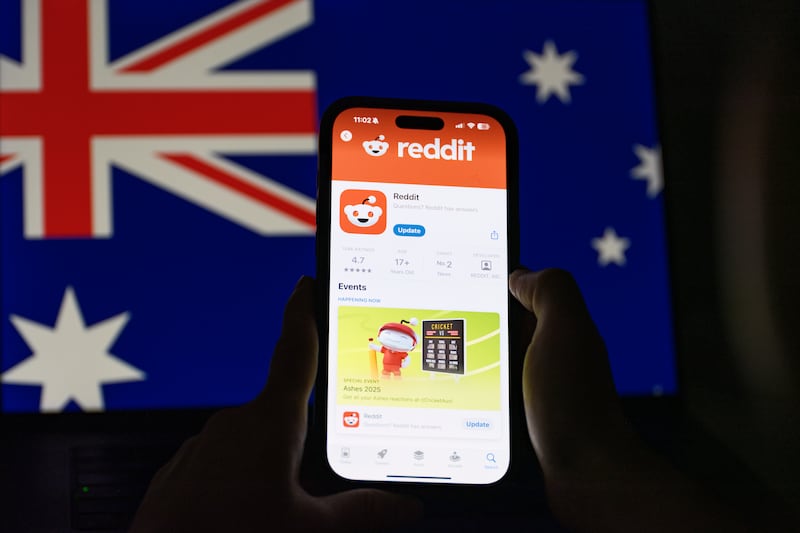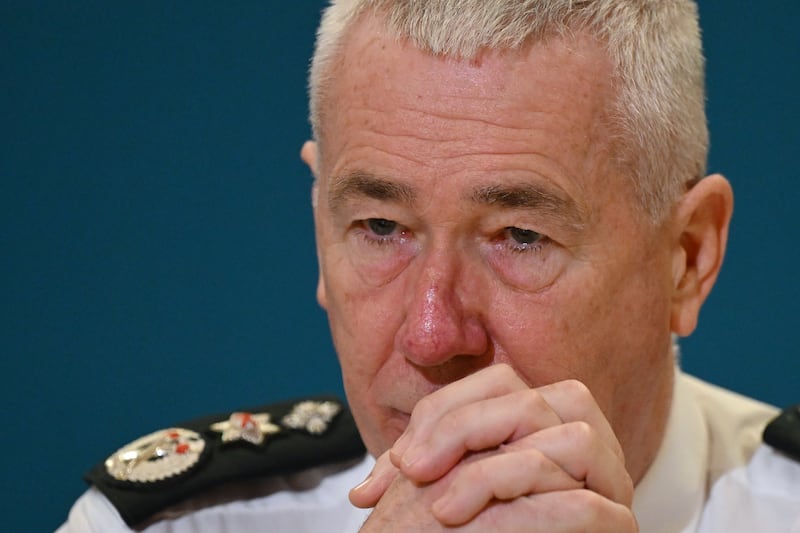What we can and cannot put in our recycling bins has suddenly become a big talking point across Ireland, particularly with the increasing prevalence of pay-by-weight charges.
For years, most people filled their household recycling bins with all kinds of plastic, paper, aluminium, cardboard and sometimes even glass – loosely following instructions from their waste management company.
Some people, however, used their recycling bin to escape pay-by-weight/lift black bin charges, dumping everything from food-splattered plastic containers to nappies inside empty cereal boxes, along with half-filled plastic bottles .
This has resulted in up to one third of all household recycling bins contaminated by unrecyclable material, according to the most recent figures – making it impossible for anything to be recycled
In November 2017, Minister for Climate Action and the Environment Denis Naughten launched a countrywide campaign to improve recycling and reduce contamination.
“Clean, Dry and Loose” is the mantra of these Government-funded workshops to help householders know what exactly what they can and can’t put in their recycling bins.
So far, the year-long Recycling Ambassador Programme (RAP) has reached about 3,000 people in free recycling workshops available to community groups, businesses, residents’ associations, sports clubs, etc.
So what exactly does “Clean, Dry and Loose” mean when it comes to recycling things in your home? Firstly, it means the obvious: everything in a recycling bin must be scrupulously clean.
That means no pizza residues on cardboard packaging, no cooked or uncooked food on aluminium or rigid plastic containers and no liquid remaining in plastic bottles for drinks, household cleaners or personal hygiene products.
Secondly, everything that goes into your household recycling bin has to be dry – so forget about sopping wet directories or newspapers, because wet paper cannot be recycled.
Wet milk cartons or other containers are verboten, too, because liquids contaminate nearby materials – which means everything will have to be removed from a recycler’s conveyor belt and sent to landfill, or for incineration.
Thirdly, everything in a recycling bin has to be put in loosely. This is crucial because workers in recycling facilities will not open bags to check whether the contents are recyclable or not.
Instead, they will remove all full bags from conveyor belts, and they, too, will head for dumping, or burning. So, plastics, cardboard and aluminium materials must be separated from each other.
When it comes to plastics, the message gets a little more complicated.
People can put in all rigid plastics containers (yogurt containers, margarine tubs, liquid soap containers, drinks bottles, mouthwash bottles, salad dressing bottles and shampoo bottles.
Household cleaning bottles, laundry detergent bottles are good, as well as rigid food trays and fruit trays. But, no soft “scrunchable” plastics can go into household recycling bins.
Mindy O’Brien, the coordinator of environmental charity Voice Ireland, says some people attending the RAP recycling workshops say: “I used to be able to recycle this light plastic packaging but now I can’t”.
However, that means only that they were put into recycling bins, not that they were recycled, says O’Brien. Soft plastics have never been recyclable in Ireland. “They were taken out and burned,” she says.
The confusion that exists in people’s minds about what they can recycle, and what they cannot, has not been helped by the fact that every waste company had different criteria, says O’Brien.
Now, members of the Irish Waste Management Association – which represents more than 80 per cent of waste firms – have agreed to follow the lists laid down on the new website, recyclinglistireland.ie.
Plastic wrappings
Plastic wrappings used for fruit, vegetables, meat/fish, bread are not recyclable. Neither is polystyrene foam, plastic netting, plastic bags, cling film or black plastic.
Black plastic is recyclable, but optical sensors can sometimes struggle to identify it on conveyor belts. Some supermarkets in the UK have banned the use of black plastic packaging because of this.
Glass is also no longer recyclable in household recycling bins in Ireland, though it will be news to many environmentally-conscious households who believe they are following the rules.
Other materials such as clothing, paint tins, batteries and toys – which have their own recycling streams in civic amenity recycling centres and charities – should not be put into household recycling bins.
So what about the recycling symbols that are sometimes found on loose plastic packaging? O’Brien says these recycling symbols may apply to packaging produced in other countries, rather than in Ireland.
“Or, maybe there isn’t a market for this form of loose plastic packaging so it’s best to follow the items on recyclinglistireland.ie and not what’s on individual packaging,” she adds.
So-called PET 1 bottles (drinks bottles, mouthwash bottles and salad dressing bottles) and HDPE 2 (milk and juice bottles, cosmetic, shampoo, household cleaning, laundry detergent and bathroom bottles) are all recyclable.
However, householders are again encouraged to consult the recyclinglistireland.ie website to identify what is recyclable in Ireland instead of relying on potentially confusing labels on plastic bottles.
And what about Tetrapak cartons? Well, they are recyclable in plants that can segregate the cardboard, aluminium and plastic in these cartons, “We’re told to put them into our recycling bins so I hope they are recyclable but I try to buy milk and juices in plastic bottles that I know are recyclable,” says O’Brien.
Sylvia Thompson gives recycling workshops as part of the Recycling Ambassador Programme 2018, run by the environmental NGO Voice Ireland. See voiceireland.org/rap and recyclinglistireland.ie for more details.
(see www.recyclinglistireland.ie for list of recyclables)
Living a plastics-free life
Living entirely without plastic is impossible, according to zero-waste advocate, Timi Nicholson, though she make every effort to reduce her plastics consumption.
“We can’t live completely plastics-free because we have mobile phones, computers and synthetic materials in our clothing but I actively avoid single-use coffee cups, plastic drinking straws, plastic cutlery and plastic bags.”
Nicholson bulk buys cleaning products from eco-suppliers who operate refilling schemes, so reducing her need to purchase new plastics containers every time she runs out.
She also actively avoids plastic packaging on food items. “I bring my own containers to buy cheese and meat. I buy milk in TetraPak and I buy yogurt in big pots that can be separated into plastic and cardboard for recycling.”
However, Nicholson is realistic about useful plastic items, such as laundry baskets and spray bottles. “We also have plastic toys but when it comes to buying something else I need like a baby’s bath, I opt to buy a second-hand one.”
She bought stainless steel cups and plates for her young son rather than plastic ones. She even brings her plastic medicines container back to the pharmacy for new antibiotic prescriptions.
“The pharmacist can’t re-use my container for anyone else but I can re-use it for my own prescriptions because my name is on the bottle,” she says.
On a broader level, Nicholson says that as a family, they have also changed their transport habits and now only run one car instead of two. She avoids food waste and buys second-hand clothes.
“I don’t buy processed foods or readymade meals in plastic packaging either which saves money too,” she adds.
Íde Mhic Gabhann, who runs the Bring Your Own market stalls in Dublin, Meath and Kildare, has been living a "disposable plastics" free life for more than two years.
She bulk buys and sells many dry food items such as rice, flour and lentils. She opts for solid soap bars for washing her hair, body and dishes. She also makes her own toothpaste and household cleaners.
“We are pumping so many new plastics and [recycled] plastics into the world that there will always be too much plastic so I refuse all free things like biros.
“I ask for drinks without straws and ketchup in ramekin dishes. I’ll even opt for a takeaway from the chipper instead of a Chinese because chips come wrapped in paper,” she adds.
How to reduce your plastic consumption
Refuse plastic bags, disposable coffee cups, plastic cutlery and plastic drinks bottles.
Buy loose fruit and vegetables and place them directly into your shopping basket rather than putting them in a plastic bag.
Bring your own containers when purchasing meat, fish and cheese at deli and butcher counters.
Shop in farmers’ markets or bulk stores. Some healthfood stores sell dry goods in bulk and household cleaners in refillable containers.
Avoid buying packaged processed food. If you fancy a sweet treat, go to a bakery and ask for a paper bag or bring your own container. Make your meals from scratch rather than buying readymade meals in plastic containers.
Buy drinks in glass bottles or aluminium cans.
Don’t buy plastic toys for children. Opt instead for wooden toys or board games.
Don’t use a plastic bag to line your bin –use newspaper instead. Or simply rinse between uses.
Store fresh vegetables and herbs in the fridge wrapped in a damp tea towel rather than plastic bags. If you are freezing meat, wrap it in baking paper and then foil to avoid freezer burn.
Voice Ireland and Friends of the Earth are holding a “Sick of Plastic” Day of Action Against Supermarket Packaging on Saturday, April 21st. Supermarket shoppers across Ireland will be encouraged to leave their plastic packaging at the tills in supermarkets on that day. See voiceireland.org. #SickOfPlastic

















